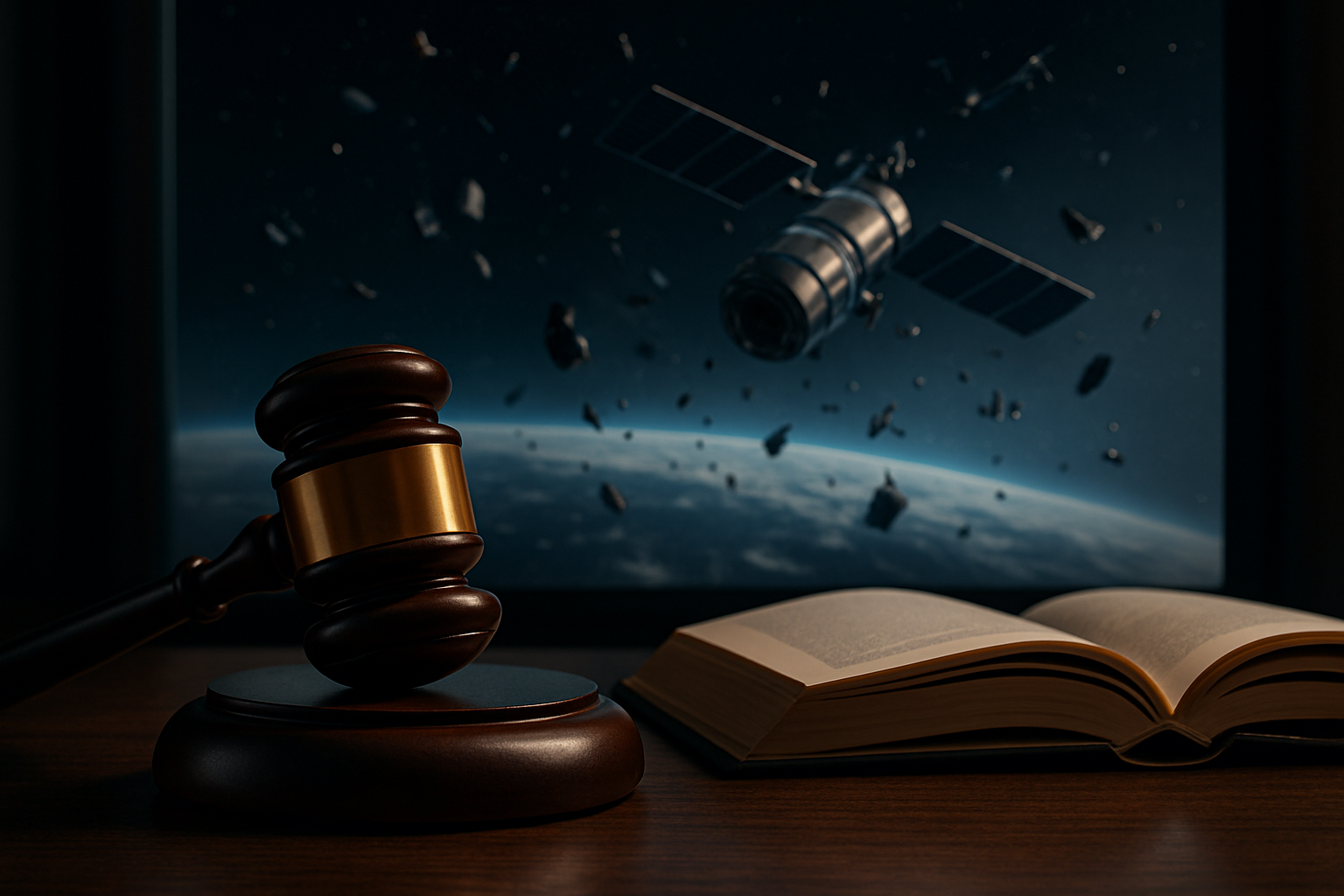The Legal Labyrinth of Space Mining: Navigating Cosmic Frontiers
Introduction: As humanity's gaze turns skyward, the prospect of mining celestial bodies for valuable resources has transitioned from science fiction to potential reality. This pioneering endeavor, however, faces a complex web of legal challenges and uncertainties. How do existing laws apply to extraterrestrial resource extraction? What new frameworks are needed to govern this cosmic gold rush?

The Dawn of Space Mining
Space mining, once confined to the realm of imagination, is now on the cusp of becoming a tangible industry. With advancements in rocket technology and the growing interest of private companies, the extraction of valuable resources from asteroids, the Moon, and even Mars is increasingly feasible. These celestial bodies are rich in rare earth elements, precious metals, and water – resources that could revolutionize both space exploration and terrestrial industries.
The Outer Space Treaty: A Foundation with Limitations
The 1967 Outer Space Treaty, ratified by over 100 countries, serves as the cornerstone of international space law. It establishes key principles, including the prohibition of national appropriation of celestial bodies and the peaceful use of outer space. However, the treaty was crafted in an era when space mining was purely theoretical, leaving significant gaps in addressing the commercial exploitation of space resources.
National Legislation: Paving the Way for Commercial Space Mining
In response to the treaty’s limitations, some nations have taken steps to create domestic frameworks for space mining. The United States led the charge with the 2015 Commercial Space Launch Competitiveness Act, which grants U.S. citizens the right to own and sell space resources they extract. Luxembourg followed suit in 2017 with its own space mining law, aiming to position itself as a hub for space resource companies.
International Debate: Ownership and Equity Concerns
The emergence of national space mining laws has sparked intense international debate. Critics argue that these laws violate the spirit, if not the letter, of the Outer Space Treaty by essentially allowing national appropriation of space resources. There are also concerns about equity, with fears that space mining could exacerbate existing global inequalities if only wealthy nations and companies can participate in this new frontier.
The Need for a New International Framework
As the potential for space mining draws closer, there is a growing consensus on the need for a comprehensive international legal framework. This framework would need to address key issues such as:
-
Resource rights and ownership
-
Environmental protection of celestial bodies
-
Benefit-sharing mechanisms for all of humanity
-
Dispute resolution procedures
-
Safety and technical standards for mining operations
The Role of the UN Committee on the Peaceful Uses of Outer Space
The UN Committee on the Peaceful Uses of Outer Space (COPUOS) has been at the forefront of discussions on space mining regulations. In recent years, COPUOS has been working on developing guidelines for the long-term sustainability of outer space activities, which could provide a foundation for more specific space mining regulations.
The Artemis Accords: A New Approach to Space Cooperation
NASA’s Artemis program, aimed at returning humans to the Moon, has introduced the Artemis Accords – a set of principles for cooperation in civil exploration and use of the Moon, Mars, and other celestial bodies. While not specifically focused on mining, the Accords address issues like resource extraction and could serve as a model for future international agreements on space mining.
Balancing Commercial Interests and the Common Heritage of Mankind
One of the most challenging aspects of regulating space mining is striking a balance between encouraging commercial development and preserving space as the common heritage of mankind. Any future framework will need to incentivize private investment while ensuring that the benefits of space resources are shared equitably among all nations.
Environmental Considerations in Space Mining
As we contemplate extracting resources from celestial bodies, environmental protection becomes a crucial consideration. How can we prevent the contamination of potentially habitable environments? What standards should be set for responsible mining practices in space? These questions require careful thought and international cooperation to develop sustainable space mining practices.
The Future of Space Mining Law
As technology advances and the first space mining operations draw closer, the development of a comprehensive legal framework becomes increasingly urgent. The coming years will likely see intense negotiations and debates as the international community grapples with this new frontier of resource extraction. The legal decisions made today will shape the future of humanity’s relationship with space for generations to come.
In conclusion, the legal landscape of space mining is as vast and complex as space itself. As we stand on the brink of this new era, it is crucial that we develop thoughtful, equitable, and forward-looking legal frameworks. These laws will not only govern the extraction of celestial resources but will also play a pivotal role in shaping humanity’s future beyond Earth. The challenge lies in crafting regulations that encourage innovation and exploration while preserving the principles of international cooperation and equitable access to the benefits of space resources.





